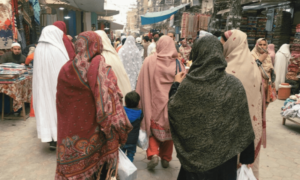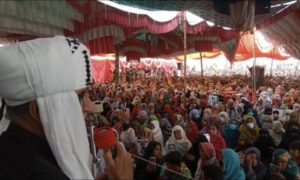LAHORE:
Some key political analysts believe that the ruling PML-N wants to put the burden of its failure on the beleaguered PTI by blaming the policies of its past governments in the Centre and the Khyber-Pakhtunkhwa provinces for the recent resurgence of terrorism in the country.
As the country witnessed an upsurge in terrorism, especially in the K-P and Balochistan province, the PML-N led governments’ in the Centre and Punjab have intensified their criticism of the PTI for allegedly implementing policies that contributed to resurgence of terrorism in Pakistan.
Just recently, PML-N’s Talal Chaudary accused the PTI of providing safe haven to terrorists. He alleged that the PTI’s policies of giving white gloved treatment to terrorists resulted in bringing terrorism back to Pakistan. The PML-N led provincial government in Punjab also routinely takes swipes at the PTI and its K-P government for “patronizing terrorists”.
Senior political analyst Mazhar Abbas said the responsibility to control terrorism rests with the incumbent PML-N government and the attempt to shift the blame onto the PTI is “lame and unfortunate”.
“This behavior of the politicians of both treasury and opposition benches comes in the way of forging a national consensus. If one is to go by the PML-N’s claim that it was the PTI’s policy of resettling three to four thousand former militants in the K-P that resulted in resurgence of terror, then the government must reveal how many of those that it squarely blames for resurgence of terrorism have been arrested.”
He said if the PML-N sincerely believes that the PTI government’s policies are to blame, then they do not register a case against the former army chief Gen (retd) Qamar Javed Bajwa and army bosses, who were the main people calling the shots then.
Abbas said the government has thus far failed to get at the bedrock of the issue. Situation in terror-hit areas has deteriorated to a point where many areas have become inaccessible.
He said the night-time traveling restriction in Balochistan speaks volumes about the government failure in battling the situation. He said the PTI has a certain position regarding Taliban, but in the past after the APS incident, Imran Khan did attend the APC and budged from his position, allowing the government of the day to delineate a National Action Plan.
Senior anchor Habib Akram, who recently was taken off air reportedly for his views, said the PML-N in the past used to blame the PPP for terrorism now it blames the PTI. He said during a public address ahead of 2013 polls, Shehbaz Sharif, then Punjab chief minister, had urged terrorists to attack those who were pro-American, declaring that the PML-N was actually anti-American.
He said back then the PML-N led Punjab government blamed the then K-P government for terrorism, an accusation that used to incense people of the province. He said even today the PML-N is following the same playbook.
He said accusing an already embattled PTI was merely political expediency, as they want to settle a political score and draw the attention away from the actual issue.
He said security for long has remained the military establishment’s exclusive domain, so how can one political party be accused of implementing any policy on its own. He said accusing PTI founder Imran Khan of the rise in terrorism, also helps the PML-N to paint the PTI and Imran in a bad light globally.
Senior political analyst Hasan Askari Rizvi said PML-N leaders are habitual of bashing PTI in all their public addresses.
He said the situation has come to a point where he does not see stability in the coming few years.
Askari said Balochistan and the K-P issues are vastly different. In Balochistan, there is a sense of alienation, while in the K-P, there is terrorism. The people of former FATA, however, also feel that the government has not done anything for their rehabilitation.
He said curbing terrorism is the federal government’s responsibility, and the PTI led K-P government cannot be squarely blamed for it. “by PTI bashing, the government is deflecting the blame from those who are actually responsible,” he added.











